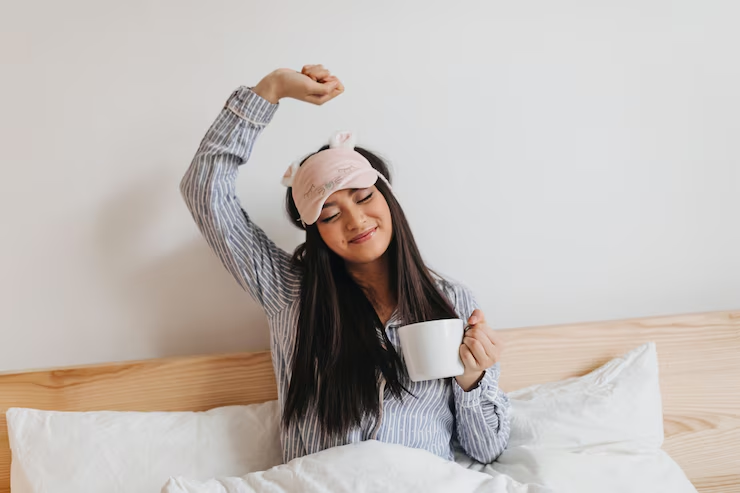What Are the Best Natural Remedies for Improving Sleep Quality?

Here’s the continuation and completion of your article:
2. Try Herbal Teas
Certain herbal teas can calm your body and prepare your mind for sleep. These teas are caffeine-free and work naturally.
-
Chamomile: Known for its mild sedative effect.
-
Lavender: Eases anxiety and promotes rest.
-
Lemon balm: Soothes stress and helps you relax.
-
Valerian root: Can improve sleep quality, though it may take a few days to show results.
Drink a warm cup about 30 minutes before bed. Avoid sugar or honey if it keeps you awake.
3. Use Essential Oils
Scents can affect your mood and calm your mind. Essential oils are a simple and natural remedy.
-
Lavender: Most popular oil for sleep.
-
Cedarwood: Has a grounding scent.
-
Bergamot: A citrus oil that relaxes instead of energizes.
Add a few drops to a diffuser or place on a cloth near your pillow. You can also mix with a carrier oil and rub it on your wrists or neck.
4. Take Magnesium-Rich Foods or Supplements
Magnesium helps relax muscles and supports steady sleep. Low magnesium can lead to poor sleep or leg cramps.
Eat foods like:
-
Leafy greens (spinach)
-
Almonds
-
Pumpkin seeds
-
Bananas
-
Whole grains
If needed, ask your doctor about a magnesium supplement—especially magnesium glycinate, which is known for calming effects.
5. Try Gentle Evening Stretches
Gentle movement helps release tension and slows your heart rate. Simple stretches or yoga moves before bed can calm your body and mind.
Try:
-
Child’s pose
-
Legs-up-the-wall pose
-
Neck rolls
-
Forward fold
Do these for 5–10 minutes with slow breathing.
6. Limit Caffeine and Alcohol
Caffeine can stay in your body for 6–8 hours. Alcohol might make you sleepy, but it disrupts deep sleep.
-
Avoid coffee, black tea, and soda after 2 p.m.
-
Drink water or herbal tea in the evening.
-
Limit alcohol at night to improve sleep quality.
7. Get Morning Sunlight
Your body has a sleep-wake cycle called a circadian rhythm. Morning sunlight helps reset this cycle and boosts melatonin (the sleep hormone) later in the day.
-
Step outside for 10–15 minutes within an hour of waking.
-
Open curtains to let in natural light.
-
Avoid bright lights late at night to support your cycle.
8. Keep a Sleep Journal
Track your sleep habits and note what works. Write down:
-
Bedtime and wake time
-
What you ate or drank
-
Your stress level
-
What you did before bed
This helps you notice patterns and find what improves or hurts your sleep.
Final Thoughts
You don’t need pills or harsh methods to sleep better. Natural remedies for improving sleep quality can make a big difference. Start with one or two tips. Build a calm routine. Let your body and mind adjust. With care and consistency, restful nights will come.
Would you like a printable checklist or sleep tracker to go with this guide?
2. Use Calming Herbs

6. Use White Noise or Soft Music







